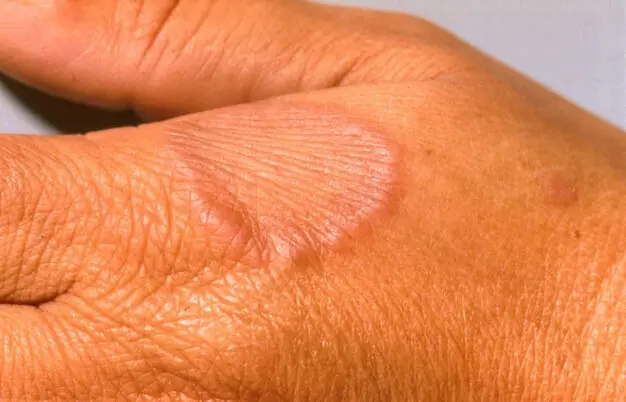- Home
- Medical news & Guidelines
- Anesthesiology
- Cardiology and CTVS
- Critical Care
- Dentistry
- Dermatology
- Diabetes and Endocrinology
- ENT
- Gastroenterology
- Medicine
- Nephrology
- Neurology
- Obstretics-Gynaecology
- Oncology
- Ophthalmology
- Orthopaedics
- Pediatrics-Neonatology
- Psychiatry
- Pulmonology
- Radiology
- Surgery
- Urology
- Laboratory Medicine
- Diet
- Nursing
- Paramedical
- Physiotherapy
- Health news
- Fact Check
- Bone Health Fact Check
- Brain Health Fact Check
- Cancer Related Fact Check
- Child Care Fact Check
- Dental and oral health fact check
- Diabetes and metabolic health fact check
- Diet and Nutrition Fact Check
- Eye and ENT Care Fact Check
- Fitness fact check
- Gut health fact check
- Heart health fact check
- Kidney health fact check
- Medical education fact check
- Men's health fact check
- Respiratory fact check
- Skin and hair care fact check
- Vaccine and Immunization fact check
- Women's health fact check
- AYUSH
- State News
- Andaman and Nicobar Islands
- Andhra Pradesh
- Arunachal Pradesh
- Assam
- Bihar
- Chandigarh
- Chattisgarh
- Dadra and Nagar Haveli
- Daman and Diu
- Delhi
- Goa
- Gujarat
- Haryana
- Himachal Pradesh
- Jammu & Kashmir
- Jharkhand
- Karnataka
- Kerala
- Ladakh
- Lakshadweep
- Madhya Pradesh
- Maharashtra
- Manipur
- Meghalaya
- Mizoram
- Nagaland
- Odisha
- Puducherry
- Punjab
- Rajasthan
- Sikkim
- Tamil Nadu
- Telangana
- Tripura
- Uttar Pradesh
- Uttrakhand
- West Bengal
- Medical Education
- Industry
Diabetes & Hyperlipidemia Increase Risk of Development of Granuloma Annulare

Granuloma annulare (GA) is a benign, often asymptomatic and self-limiting condition. It is characterized by the generalized distribution of the skin manifestations that cover more than one anatomic site. In a recent study, researchers have found that diabetes and hyperlipidemia may be risk factors for the development of GA and that autoimmunity may play a role in the pathogenesis of GA. The study findings were published in the JAMA Dermatology on June 09, 2021.
Previous studies suggest that granuloma annulare (GA) has been associated with diabetes and several other conditions. However, these studies have been limited by single-centre designs and small sample sizes. Therefore, researchers of the University of Pennsylvania Perelman School of Medicine, Philadelphia, conducted a study to evaluate whether there is an association between GA and type 2 diabetes, hyperlipidemia, autoimmune conditions, and hematologic malignant neoplasms, using a large population-based cohort study.
In this retrospective cohort study, the researchers included a total of 5137 patients with GA and matched them by age and sex with up to 10 randomly selected controls (n = 51 169) with a diagnosis of a nevus or seborrheic keratosis. They collected de-identified data from the US Optum Clinformatics Data Mart Database and analyzed them between January 1, 2016, and June 30, 2019. They used logistic regression was used to evaluate for potential associations between GA and diabetes, hyperlipidemia, autoimmune conditions, and hematologic malignant neoplasms.
Key findings of the study were:
- Upon analysis, the researchers noted that when compared with controls, individuals with GA were more likely to have a baseline
◊ Diabetes (1086 [21.1%] vs 6780 [13.3%]; adjusted odds ratio [aOR], 1.67),
◊ Hyperlipidemia (1669 [32.5%] vs 14 553 [28.4%]; aOR, 1.15),
◊ Hypothyroidism (727 [14.2%] vs 5780 [11.3%]; aOR, 1.24),and
◊ Rheumatoid arthritis (62 [1.2%] vs 441 [0.9%]; aOR, 1.34).
- They also noted that those with GA were more likely to have incident
- Diabetes (144 [2.8%] vs 1061 [2.1%]; aOR, 1.31),
◊ Hypothyroidism (41 [0.8%] vs 252 [0.5%]; aOR, 1.59),
◊ Systemic lupus erythematosus (21 [0.4%] vs 65 [0.1%]; aOR, 3.06), and
◊ Rheumatoid arthritis (26 [0.5%] vs 122 [0.2%]; aOR, 2.05).
- However, they found no association between GA and an increased risk of hematologic malignant neoplasms.
The authors concluded, "This population-based cohort study identified associations between GA and baseline diabetes and hyperlipidemia as well as between GA and both baseline and incident autoimmune conditions. These findings suggest that diabetes and hyperlipidemia may be risk factors for the development of GA and that autoimmunity may be an important factor in the pathogenesis of GA."
For further information:
https://jamanetwork.com/journals/jamadermatology/article-abstract/2780649
Dr Kartikeya Kohli is an Internal Medicine Consultant at Sitaram Bhartia Hospital in Delhi with super speciality training in Nephrology. He has worked with various eminent hospitals like Indraprastha Apollo Hospital, Sir Gangaram Hospital. He holds an MBBS from Kasturba Medical College Manipal, DNB Internal Medicine, Post Graduate Diploma in Clinical Research and Business Development, Fellow DNB Nephrology, MRCP and ECFMG Certification. He has been closely associated with India Medical Association South Delhi Branch and Delhi Medical Association and has been organising continuing medical education programs on their behalf from time to time. Further he has been contributing medical articles for their newsletters as well. He is also associated with electronic media and TV for conduction and presentation of health programs. He has been associated with Medical Dialogues for last 3 years and contributing articles on regular basis.
Dr Kamal Kant Kohli-MBBS, DTCD- a chest specialist with more than 30 years of practice and a flair for writing clinical articles, Dr Kamal Kant Kohli joined Medical Dialogues as a Chief Editor of Medical News. Besides writing articles, as an editor, he proofreads and verifies all the medical content published on Medical Dialogues including those coming from journals, studies,medical conferences,guidelines etc. Email: drkohli@medicaldialogues.in. Contact no. 011-43720751


